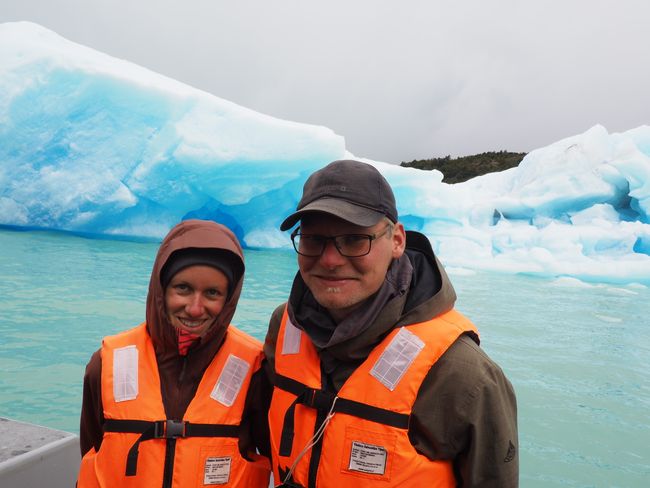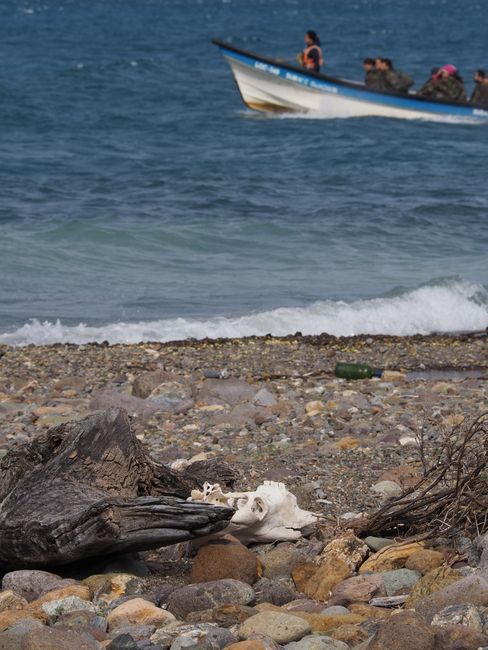Anja
Klasse Kommentar Lisa and Jan, danke fürs Teilen! Backpacking ist einfach super... durch stinknormale Hotelurlaube hättet ihr sicherlich nicht so wahnsinnig viele und authentische Eindrücke gewonnen. Da merkt man mal wieder, wie wenig wir hier in Deutschland trotz vergleichsweise hochwertiger Nachrichten- und Berichterstattung mitbekommen. Away from traveling
Gipatik: 30.12.2018
Mag-subscribe sa Newsletter
After almost 3 months of our journey, we have been able to discover some cultural and scenic treasures and are impressed by the places we have already traveled to. We have met special people who have told us a lot about their homeland and also about the shortcomings and problems of their countries. The following topics, which we would like to briefly touch on here, have repeatedly come up.
For example, when we learned in a reportage a few months ago in Germany that Monsanto (now Bayer subsidiary) is building a seed monopoly and working closely with governments (not only in South America!), we initially questioned the truthfulness of it. You don't come into contact with these topics so often, as they are hardly discussed in the known media (apart from glyphosate). Here, at the other end of the world, the topic is more current than ever and we encounter it over and over again. The names 'Bayer' or 'Monsanto' are on everyone's lips. People report that there is strict control over which seeds they use and that it is becoming increasingly difficult to maintain old varieties and diversity. Recently, for example, the Argentine government tried several times to change the Seed Law of 1973, which allows farmers to freely use their seeds. This
'...is part of a global offensive aimed at bringing the seeds that form the basis of all food chains under the control of companies,' says a call against the 'Bayer-Monsanto Law'.'
More about this on the German-language Latin America news site 'Amerika 21', which we came across repeatedly when researching certain topics. (https://amerika21.de/2018/12/218174/argentinien-bayer-monsanto)
When shopping daily in various supermarkets and minimarkets, it is also noticeable that the typical suspicious corporations cannot be avoided. Multiple times we try to avoid Nestlé products, for example, but often the only alternative is a product from the same company. The same applies to Unilever, Pepsico, Coca-Cola, etc. You get the feeling that local products have a hard time making it onto the shelves. Similar problems are certainly known in Germany as well, but here the circumstances seem to be much more severe.
Monopolies are not uncommon even on a smaller scale here, so we repeatedly find that various bus companies, tour providers, ferries in a certain region are the sole representatives and thus have control over price setting. Just to name a few examples.
The power of corporations also has an impact on the landscape itself. In some regions, pine or eucalyptus monocultures dominate the landscape, which are not native here and have devastating effects on the natural cycle and balance. A large part of the former forest areas has been cleared for agriculture, furniture, and construction industries.
People also have to fight hard here to prevent more mines (often European companies that want to extract gold or copper) from destroying nature and leaving behind toxic residues that are needed for production. Especially in less populated areas, people often initially see mining as job-creating and therefore positive, but then often have to realize that the working conditions do not meet their expectations and after a few years are left sitting on the ruins of a destroyed landscape that is left behind after the companies leave. This process is by no means sustainable, as the area can no longer be used for tourism and the actual profit does not stay in the country (at least not with the ordinary population). Similar exploitations also occur here, for example, in fishing or aquaculture. This exacerbates the problem of poverty and the gap between rich and poor is growing larger and larger.
The majority of this article is not based on hard facts, but rather on our own experiences and conversations with locals. Fortunately, many people are aware of the problems and there are movements in the right direction, such as the prevention of gold mining in Esquel by the 'No a la Mina' movement, the development of some areas for sustainable tourism, the establishment of nature reserves, and a high proportion of renewable energies in Argentina.
We hope that awareness will continue to spread so that these wonderful landscapes and animal worlds can be preserved.
Mag-subscribe sa Newsletter
Tubag (1)


